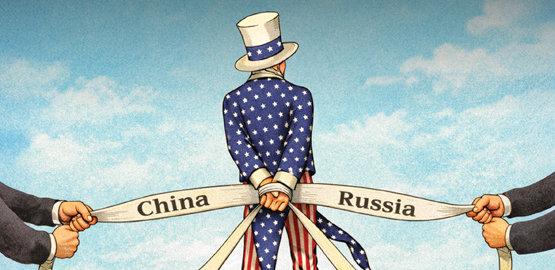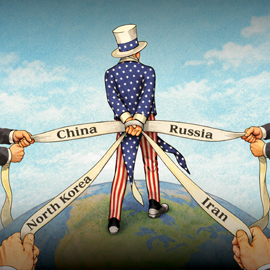News
A Defense Buildup in the Near Term?
Procedural and political hurdles make it difficult to see how a substantial defense buildup on the order of the $54 billion proposed by the Trump administration, the $621.5 billion agreed to by the House Armed Services Committee and the Appropriations Committee Defense Subcommittee, or the $640 billion proposed by the Senate Armed Services Committee can be realized.
Modern Missiles Outflank the Tyranny of Distance
From time to time Australia has feared foreign invasion, whether by France, Russia, Japan or even (in the early 19th century) a rising US. The threat became real during World War II when the Asian order collapsed, bringing Japanese military forces to Australia’s front door.
How to Diminish a Superpower: Trump’s Foreign Policy After Six Months
Regardless of which candidate had won the 2016 election, the tenure of the 45th president was bound to represent a pivotal moment in the historical arc of the American superpower
From Wales to Brussels: Analyzing NATO in the Trump Era
The heads of state and government of the North Atlantic Treaty Organization (NATO) members met in Brussels on May 25, 2017. The agenda was packed, reflecting the severity of both the European and international security environments.
America and the Geopolitics of Upheaval
Center for Strategic and Budgetary Assessments research fellow Katherine Blakeley noted that Congress has little time left to iron out a federal spending plan, with nominations and an ambitious GOP agenda that includes tax reform and a health care overhaul eating up the legislative calendar.
The New World Disorder
During Donald Trump’s presidency and after, US foreign policy is likely to be wracked by crises. From the instability and violence in Ukraine, to the unrelenting turmoil in the Middle East, to the provocations of an increasingly dangerous North Korea, to the dangers posed by a rising China in the South China Sea and elsewhere, American policymakers are currently facing crises more numerous and geopolitically significant than at any time in a generation. Crises, however, are merely symptoms of deeper changes in the structure of global affairs. And so for the United States to meet these challenges effectively, American officials will first need to come to grips with the fact that global politics are now changing in profound ways. The fundamental fact of international politics today is that the post-Cold War era has ended, and the United States now confronts a more disordered, difficult, and contested global arena.

























